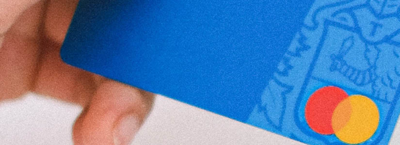
We all want to take control of our finances and live debt free. During the pandemic, financial security has become more of an issue than ever. Unfortunately, it’s all too easy to spiral into increasing debt, especially when those unforeseen bills strike.
When credit cards or overdrafts get out of control, it’s easy to end up spending all your income repaying debt. There is a better way. Instead of dreaming of the lifestyle you want, start by being realistic about the lifestyle you can afford
That means being brutally honest about your personal finances. That means you may need to stop spending so much in the short term and start prioritising those essential bills for long term gain.
Are you consistently spending more than you earn?
If you consistently spend more than you earn, it won’t be long before you find your monthly earnings are swallowed up paying off your debts. Want to know how to stop spending money and get your debt under control? Try these top tips:
Check your monthly outgoings
First things first. Before you start cutting back on your spending you need to know what you’re spending your money on every month.
The easiest way is to check all your account statements and then start grouping your expenses into essential bills and luxuries. This could help you identify areas where you could make savings without missing out. If you are employed by the NHS you could also use our free product Salad Money Mind, which will group your spending for you.
Change your direct debits and standing order dates
Paying by direct debit could save you money on your bills. Changing the payment date could also make it easier for you to manage your money and control when your bills are paid.
You might want to group all your payments together or spread them through the month. In most cases a quick call is all it takes to change the payment date - you could also set an alert so you can check your account and make sure your direct debits and standing orders will be covered.
Set weekly budgets
A weekly budget is much more manageable than a monthly one. You could find that by breaking down your spending you find ways to save and make trade-offs between your spends across the month.
Money Saving Expert has a useful free budget planning tool that could help you take the first steps to getting your spending under control.
Track your spending
There are plenty of apps that let you track your spending. If you work for the NHS and want a free tailor-made plan to help you save money, try Salad Money Mind. Our tool allows you to anonymously compare your spending habits with your NHS colleagues, so you can learn from others. It’ll also help identify the NHS benefits you’re entitled to. This way, you can save without changing your spending habits too much!
Salad Money Mind also gives you free, simple advice about your consumer rights when it comes to taking out a loan.
Write a shopping list
Before you go shopping make sure you write a list and stick to it. You might be less tempted to add those extra goodies to your trolley.
If you shop online you might even find it's easier to stick to your budget as you’ll get a running total as you shop. You’ll also be less easily distracted and make fewer impulse buys.
Cut out unnecessary treats
Cutting out unnecessary treats can help you save and there are plenty of creative ways to make sure you don’t miss out. You could start by calculating how much a takeaway coffee a day costs in hours worked - try the De-motivator tool to help.
Next try identifying any costly subscriptions you have and ask yourself whether you really need Netflix or that gym membership. Cancelling direct debits you don’t need or can’t afford could save you money - you might even be able to get a refund.
Then challenge yourself to have the best movie night out at home or find an online fitness class that doesn’t cost a penny.
Reduce takeaways and eating out
We all love a cheeky takeaway but that convenience food habit can blow a big hole in your budget. Try cutting back on takeaways and eating out by taking packed lunches to work or learning to cook great fakeaway treats at home.
Learn to say "no"
If you want to stay in control of your money, sometimes you have to say “no”. Start by articulating your savings goals “no, I’m saving for…” and use ‘no’ every time you’re tempted to splurge - try saying “no I already have…” or “no I promised myself not to…” to start reframing your thinking about spending.
Try savings pots
Saving your shrapnel is an easy way to see your pennies mount up. Label up your jars with what you’re saving for and give yourself some extra motivation. Or try the £2 challenge to really make your money work harder. If you rarely use cash, some online banking tools allow you to automatically round up your purchases and put the extra money in a savings pot for later.
Avoid impulse purchases
The easiest way to avoid impulse purchases is to avoid going shopping. If that’s a hard habit to break, try exercising or take up a hobby. If you can’t avoid temptation, you could keep a list of your debts and your savings targets in your wallet so you’re not tempted to spend.
Don't spend what you don't have
Try leaving your credit cards at home when you go shopping. Or think of them as debt cards - after all, you’re spending the bank’s money, not your own. As a last resort you could cut up your credit cards so you’re no longer tempted to use them.
What you could do once you've learnt to stop spending
When you’re cutting back on your spending, your essential bills are always the first priority. But once you have your spending under control it could be a good time to start thinking about safeguarding your financial future.
Here are three ways you could start planning now:
Pay off debts
UK Households have saved around £17.5bn during the pandemic and those habits are set to continue. If you’ve managed to curb your spending you could consider paying down your debts and enjoying a debt-free future.
Create an emergency pot
Starting an emergency pot now could make the difference between you staying debt-free and getting back into old habits. Putting aside a sum of money every month will help to make you more financially resilient when those unexpected bills land on the mat.
Investments
Investing is a gamble - you can make a profit but you could also lose everything. Diversifying your investments and investing in low-risk schemes could work for you if you’re prepared to invest your money over the long term. If you think investment could provide the financial future you’re looking for, do your research and consider investing through a fund rather than as an individual.
Salad Money lending
At Salad Money we’re on your side, with affordable loans for employed people across the UK. If you want to find out more about our fair and affordable lending then get in touch today or apply online now.
Applying for one of our new loans doesn’t impact your credit score. We use Open Banking in our initial assessment. If successful, we report your loan to the CRA’s (Credit Reference Agencies). Your credit score won’t hold you back from being eligible.



